The AAG Fellows
Deadline: September 15, 2025 (by midnight EST)
The AAG Fellows is a recognition and service program that recognizes geographers who have made significant contributions to advancing geography.
AAG Fellow nominations can be submitted for two different general categories: 1) Later-Career candidates have demonstrated a sustained track record of significant contributions to the discipline and the Association over the course of their career (that is, 15 years or more of professional experience); 2) Early/Mid-Career candidates are outstanding early to mid-career geographers (up to 15 years of professional experience) who are rising stars in the discipline, becoming known for creative, innovative and inclusive approaches in their area of expertise, and involvement with the AAG. Regardless of the distinction made between the Later-Career and Early/Mid-Career candidates during the submission and selection process, all candidates who are selected for recognition under this program will simply and uniformly be referred to as “AAG Fellow.”
AAG Fellows will serve the AAG by contributing to AAG initiatives; advising on AAG strategic directions and grand challenges; by serving on AAG task forces or committees; and/or by mentoring early and mid-career faculty. Selected AAG Fellows should be prepared and willing to serve on an AAG Standing Committee (for example a three-year term of service), for instance. In addition, Fellows may be invited by the AAG Executive Director to contribute to the formulation of AAG Strategic Plans; to develop seminars, workshops, training sessions or other skill and knowledge-sharing events to benefit AAG members; they may be asked to test and provide feedback on new AAG services; or be asked to advise the AAG in developing ideas for new and/or improved offerings and services to broaden AAG membership and its community of partners. Because the Fellows Program is both a recognition and also a service award, nominators and self-nominators should confirm their nominee’s willingness to serve the AAG as described.
The Executive Director will report annually to the Council at its Spring meeting on the ways in which they have engaged AAG Fellows in service to the AAG on activities such as (but not limited to) those exemplified above. The most recently appointed class of Fellows will have a standing invitation to an annual AAG Fellows Luncheon to be held in their honor at each in-person AAG Annual Meeting.
Akin to other scientific organizations, the honorary title of AAG Fellow is conferred for life. Once designated, AAG Fellows remain part of this ever-growing advisory body.
Nomination Guidelines
Nominations should be submitted by the deadline by completing the online application form.
Please submit a nomination letter, indicating which category the nomination is intended for (i.e., Later-Career or Early/Mid-Career) and the candidate’s CV. In addition to the letter of nomination (two-page limit), please submit at least two additional letters of support for the nominee. Self-nominations are allowed and nominees may also decline this service award.
Nomination letters should clearly address the significant contribution of the nominee to advancing geography as outlined above. Nomination letters should also clearly state how the candidate’s credentials might contribute to a particular current AAG initiative or strategic goal (e.g., diversity, equity and inclusion; membership retention and expansion; improving accessibility of AAG services, etc.) and what new ideas that particular nominee may bring to that AAG initiative. Additionally, nomination letters should explicitly address how the nominee is committed to (or has already demonstrated their commitment to) the principles and practices of justice, equity, diversity, and inclusion (JEDI).
The definition of contribution is to be interpreted broadly and to include service to the AAG; outstanding teaching and mentoring that impacts the profession; innovative administration in academe, government, and industry; novel and sustained research; efforts to sustain and advance justice, diversity, equity, and inclusion in the discipline, and outreach that communicates the importance and value of geography to the public.
In the case of nominations for Later-Career candidates, the definition of significant is exceptional and sustained, to denote that this is an extraordinary honor reserved for a limited number of members of the AAG who exhibit conspicuous merit.
The nominations are reviewed by the AAG Fellows Selection Committee, which is a volunteer committee. A final slate of Fellows nominees is presented by the Committee to the AAG Council at its annual Fall meeting. The names put forward to the Council are accompanied by a statement from the Fellows Selection Committee indicating the contribution which forms the basis of the proposed award. The final decision for designating AAG Fellows rests with the Council.
Nominations for these awards are solicited in late spring and announcements are published in the AAG Newsletter and on the AAG’s social media platforms, along with electronic distribution to specialty and affinity groups, department chairs, all AAG members, and other interested parties.
As with all other AAG awards, eligibility also rests on the candidate being in compliance with the AAG Professional Conduct Policy. Nominations may be rescinded, and the award may also be revoked for any candidate or awardee who is found in violation of the AAG’s Professional Conduct Policy.
Eligibility
In making a nomination, please be aware that under current guidelines:
- No more than two tenths of one percent (0.2%) of AAG membership, or approximately 20 Fellows will be selected in any single year; of those, up to 10 can be selected from the Early/Mid-Career candidate pool.
- Nominees must be AAG members if they are residents of the United States; if they reside elsewhere, the membership requirement is waived. In some cases, professionals from other disciplines or professions are eligible for consideration.
- Previous AAG Honorees (see https://www.aag.org/honors) are eligible for nomination under the Later-Career candidate category.
- Designation as an AAG Fellow is not awarded posthumously, unless the Fellow dies after the Council has voted on the award.
- Nomination dossiers will be automatically carried forward for one year after the initial nomination, unless the nominee (or the nominator) withdraws the name from consideration.
- The AAG strongly encourages nominators and selection committees to consider broad and inclusive criteria for AAG Fellows. Such criteria can include (but are not limited to): race, age, religion, creed, color, ancestry, citizenship, national or ethnic origin, disability, military or veteran status, sex, gender identity or expression, sexual orientation, and also institutional diversity (e.g., teaching institutions, Historically Black Colleges and Universities, Hispanic Serving Institutions, and other Minority Serving Institutions, tribal institutions, research institutions, Associates’ degree granting programs, private sector organizations, government, non-profit organizations, etc.).
- As with all other AAG awards, eligibility also rests on the nominee being in compliance with the AAG Professional Conduct Policy. Nominations may be revoked, and the title of AAG Fellow may also be revoked for any candidate who is found in violation of this policy.
AAG Fellows Recipients
Mauris non tempor quam, et lacinia sapien. Mauris accumsan eros eget libero posuere vulputate. Etiam elit elit, elementum sed varius at, adipiscing vitae est. Sed nec felis pellentesque, lacinia dui sed, ultricies sapien. Pellentesque orci lectus, consectetur vel posuere.
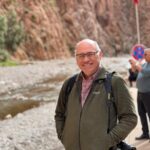
David Cairns
Dr. David Cairns is a respected and innovative biogeographer who integrates diverse field studies to understand how ecological and geomorphic patterns and processes are shaped by gradients in environmental conditions, disturbance regimes, and climate change. His work straddles specialty groups and scientific communities, and he has received honors from several, including the Henry C. Cowles Award from the American Association of Geographers (AAG) Biogeography Specialty Group. He is also a Fellow of the American Association for the Advancement of Science. Cairns’ research focus in the high Arctic has been a significant part of his career, and he currently serves as president of the Board of Directors of the Arctic Research Consortium of the United States, which coordinates international and interdisciplinary work in the Arctic, and was integral to the development and activities of the International Polar Year research program. He served in various capacities for the AAG, including serving as chair and board member for the Biogeography Specialty Group, and as a reviewer on AAG journals and student paper competitions. He made impressive efforts to implement equity and diversity policies at Texas A&M University. Dr. Cairns has provided a model of mentorship and collaboration that elevates all of the voices in a room and has a laudable track record of teaching and mentoring.

2025 AAG Fellows
David Cairns
2025 AAG Fellows
Dr. David Cairns is a respected and innovative biogeographer who integrates diverse field studies to understand how ecological and geomorphic patterns and processes are shaped by gradients in environmental conditions, disturbance regimes, and climate change. His work straddles specialty groups and scientific communities, and he has received honors from several, including the Henry C. Cowles Award from the American Association of Geographers (AAG) Biogeography Specialty Group. He is also a Fellow of the American Association for the Advancement of Science. Cairns’ research focus in the high Arctic has been a significant part of his career, and he currently serves as president of the Board of Directors of the Arctic Research Consortium of the United States, which coordinates international and interdisciplinary work in the Arctic, and was integral to the development and activities of the International Polar Year research program. He served in various capacities for the AAG, including serving as chair and board member for the Biogeography Specialty Group, and as a reviewer on AAG journals and student paper competitions. He made impressive efforts to implement equity and diversity policies at Texas A&M University. Dr. Cairns has provided a model of mentorship and collaboration that elevates all of the voices in a room and has a laudable track record of teaching and mentoring.
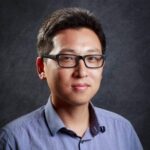
Gang Chen
Dr. Gang Chen has an exemplary track record of leadership and service at multiple levels. This includes, among other things, leadership of the Landscape Specialty Group to service on the Southeastern Division of the AAG (SEDAAG) Program committee to the editorship of the journal Remote Sensing of Environment. A professor in the Department of Earth, Environmental and Geographical Sciences, University of North Carolina at Charlotte, Dr. Chen’s scholarship spans environmental sustainability, geospatial analytics, and remote sensing. Dr. Chen’s research has contributed to the development of novel geospatial models and datasets that advance Earth observation, big data analytics, and enhanced accessibility of geographic services to underserved communities. Dr. Chen is a beloved mentor who has served as faculty advisor to 46 students, from high school sophomores to postdoctoral fellows. Passionate about justice, equity, diversity, and inclusion, Dr. Chen has strived to improve representation of women within the male-dominated field of remote sensing and has undertaken numerous professional development initiatives, workshops, and community outreach events to support the next generation of geographers. These efforts span advising two NGOs – Sustain Charlotte and TreesCharlotte in environmental protection using green infrastructure, giving ‘Science Saturdays’ talks at the North Carolina Museum of Natural Sciences for K-12 students and their families, and developing remote sensing workshops for urban planners and students in Bangkok, Thailand.

2025 AAG Fellows
Gang Chen
2025 AAG Fellows
Dr. Gang Chen has an exemplary track record of leadership and service at multiple levels. This includes, among other things, leadership of the Landscape Specialty Group to service on the Southeastern Division of the AAG (SEDAAG) Program committee to the editorship of the journal Remote Sensing of Environment. A professor in the Department of Earth, Environmental and Geographical Sciences, University of North Carolina at Charlotte, Dr. Chen’s scholarship spans environmental sustainability, geospatial analytics, and remote sensing. Dr. Chen’s research has contributed to the development of novel geospatial models and datasets that advance Earth observation, big data analytics, and enhanced accessibility of geographic services to underserved communities. Dr. Chen is a beloved mentor who has served as faculty advisor to 46 students, from high school sophomores to postdoctoral fellows. Passionate about justice, equity, diversity, and inclusion, Dr. Chen has strived to improve representation of women within the male-dominated field of remote sensing and has undertaken numerous professional development initiatives, workshops, and community outreach events to support the next generation of geographers. These efforts span advising two NGOs – Sustain Charlotte and TreesCharlotte in environmental protection using green infrastructure, giving ‘Science Saturdays’ talks at the North Carolina Museum of Natural Sciences for K-12 students and their families, and developing remote sensing workshops for urban planners and students in Bangkok, Thailand.
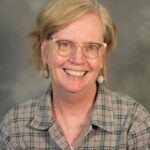
Lorraine Dowler
Dr. Lorraine Dowler has played a significant and sustained role in advancing geography through her exceptional research, service, and teaching innovations. She has shaped the field of feminist geography by mentoring a generation of feminist scholars and documenting the ties between the gendered spaces of daily life and state politics, power, and militarization. Internationally renowned for her work on feminist geopolitics, Dr. Dowler raises key questions about the gendering of identities in geopolitics, the power dynamics underpinning them, and the blurred boundaries between public and private spaces. She has had a central role in efforts to advance and improve our discipline through her service on AAG Council and Finance committee and her leadership of initiatives like the Task Force for a Harassment-Free AAG. Within her university, she has held a range of leadership positions, from overseeing initiatives around justice, equity, diversity, and inclusion to the headship of Women’s Studies. An exceptional and dedicated mentor, Dr. Dowler is diagnosing obstacles to access and exposing bias and harassment while mentoring new generations of geographic scholars at the intersection of her department, college, and profession. Recipient of teaching and mentoring awards, she has initiated innovations in undergraduate curriculum such as the Apocalyptic Geographies course, which challenges students to use a geographic perspective in analyzing contemporary global justice issues.

2025 AAG Fellows
Lorraine Dowler
2025 AAG Fellows
Dr. Lorraine Dowler has played a significant and sustained role in advancing geography through her exceptional research, service, and teaching innovations. She has shaped the field of feminist geography by mentoring a generation of feminist scholars and documenting the ties between the gendered spaces of daily life and state politics, power, and militarization. Internationally renowned for her work on feminist geopolitics, Dr. Dowler raises key questions about the gendering of identities in geopolitics, the power dynamics underpinning them, and the blurred boundaries between public and private spaces. She has had a central role in efforts to advance and improve our discipline through her service on AAG Council and Finance committee and her leadership of initiatives like the Task Force for a Harassment-Free AAG. Within her university, she has held a range of leadership positions, from overseeing initiatives around justice, equity, diversity, and inclusion to the headship of Women’s Studies. An exceptional and dedicated mentor, Dr. Dowler is diagnosing obstacles to access and exposing bias and harassment while mentoring new generations of geographic scholars at the intersection of her department, college, and profession. Recipient of teaching and mentoring awards, she has initiated innovations in undergraduate curriculum such as the Apocalyptic Geographies course, which challenges students to use a geographic perspective in analyzing contemporary global justice issues.
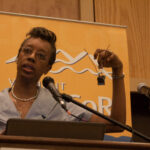
Lesley-Ann Dupigny-Giroux
Dr. Dupigny-Giroux is a University Distinguished Professor of Geography and Geosciences at the University of Vermont. She is also the state climatologist of Vermont and a recognized leader in hydroclimatic natural hazards, climate literacy and climate services. Her research intersects climate science, hydrology, remote sensing, and geographic information science. She was lead editor of “Historical climate variability and impacts in North America,” a first monograph of its kind that uses documentary and ancillary records in analyzing climate variability and change. She has contributed to all five National Climate Assessments and served a major role on the 3rd and 4th National Climate Assessments. A highly sought-after speaker, Dr. Dupigny–Giroux has focused on climate literacy to help citizens, municipalities and legislators understand how climate science can inform decisions and improve quality of life. Her numerous leadership roles include serving as president of the American Association of State Climatologists, member of the American Meteorological Society’s Applied Climatology Committee, member of the NOAA Science Advisory Board Climate Working Group, and member of three committees/boards of the National Academies of Science, Engineering and Medicine. A Fellow of the American Meteorological Society, she was also an AAG National Councilor and Chair of the Climate Specialty Group, which has honored her with the Lifetime Achievement Award. The AAG is very proud to recognize Dr. Lesley-Ann Dupigny-Giroux as an AAG Fellow.

2025 AAG Fellows
Lesley-Ann Dupigny-Giroux
2025 AAG Fellows
Dr. Dupigny-Giroux is a University Distinguished Professor of Geography and Geosciences at the University of Vermont. She is also the state climatologist of Vermont and a recognized leader in hydroclimatic natural hazards, climate literacy and climate services. Her research intersects climate science, hydrology, remote sensing, and geographic information science. She was lead editor of “Historical climate variability and impacts in North America,” a first monograph of its kind that uses documentary and ancillary records in analyzing climate variability and change. She has contributed to all five National Climate Assessments and served a major role on the 3rd and 4th National Climate Assessments. A highly sought-after speaker, Dr. Dupigny–Giroux has focused on climate literacy to help citizens, municipalities and legislators understand how climate science can inform decisions and improve quality of life. Her numerous leadership roles include serving as president of the American Association of State Climatologists, member of the American Meteorological Society’s Applied Climatology Committee, member of the NOAA Science Advisory Board Climate Working Group, and member of three committees/boards of the National Academies of Science, Engineering and Medicine. A Fellow of the American Meteorological Society, she was also an AAG National Councilor and Chair of the Climate Specialty Group, which has honored her with the Lifetime Achievement Award. The AAG is very proud to recognize Dr. Lesley-Ann Dupigny-Giroux as an AAG Fellow.
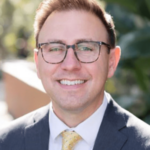
Timothy Hawthorne
Dr. Timothy Hawthorne’s career has been focused on community, from his pioneering research in community geography to his leadership in student engagement with participatory research. His innovative vision, creating mobile GIS labs to bring geoscience technology to high-need schools and communities, has made GIS an accessible science and tool for communities. These efforts have advanced geography as a participatory, citizen science. Dr. Hawthorne has been a leader within Applied Geography and geographic education, and he has been an award-winning mentor during his career. Just as his research has been focused on community engagement, his teaching and mentorship has been dedicated to advocating for geography students and providing opportunities for students to get involved in the field, showing them that geography is a discipline engaged in the real world with real peoples’ lives. His publicly engaged research in Belize illustrates how Dr. Hawthorne unites his research, teaching, and mentorship in a participatory, community project. Through long-standing research with a community with which he has built strong ties, Dr. Hawthorne invites students to participate in publicly engaged research. This combination of community research, innovative geographic mobile labs, and student-centered, and participatory field work research both in the US and abroad shows that Dr. Hawthorne is the quintessential scholar-teacher.

2025 AAG Fellows
Timothy Hawthorne
2025 AAG Fellows
Dr. Timothy Hawthorne’s career has been focused on community, from his pioneering research in community geography to his leadership in student engagement with participatory research. His innovative vision, creating mobile GIS labs to bring geoscience technology to high-need schools and communities, has made GIS an accessible science and tool for communities. These efforts have advanced geography as a participatory, citizen science. Dr. Hawthorne has been a leader within Applied Geography and geographic education, and he has been an award-winning mentor during his career. Just as his research has been focused on community engagement, his teaching and mentorship has been dedicated to advocating for geography students and providing opportunities for students to get involved in the field, showing them that geography is a discipline engaged in the real world with real peoples’ lives. His publicly engaged research in Belize illustrates how Dr. Hawthorne unites his research, teaching, and mentorship in a participatory, community project. Through long-standing research with a community with which he has built strong ties, Dr. Hawthorne invites students to participate in publicly engaged research. This combination of community research, innovative geographic mobile labs, and student-centered, and participatory field work research both in the US and abroad shows that Dr. Hawthorne is the quintessential scholar-teacher.
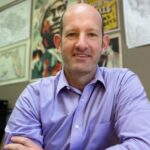
Joshua Inwood
Dr. Joshua Inwood’s career has centered on developing theoretical frameworks to study racism, white supremacy, and the legacies of social justice movements while ensuring this research is accessible and impactful to multiple audiences. His work has positioned him as a leading voice in examining white supremacy within the field of geography, illustrating how geographic concepts and practices both perpetuate racial oppression and serve as tools for resistance. At the core of Dr. Inwood’s scholarship is an exploration of power dynamics in social and political discourse, alongside a commitment to understanding how grassroots resistance movements challenge systems of oppression and demand accountability. Dr. Inwood is widely recognized as one of geography’s most effective advocates and communicators. Through public forums, he demonstrates the critical role of geographic storytelling and perspectives in addressing pressing social issues. A prolific writer, he contributes extensively to both scholarly publications and broader public research platforms, bridging the gap between academia and the wider community.
In addition to his research, Dr. Inwood serves as a faculty facilitator and co-organizer for workshops aimed at equipping future scholars and educators with tools to use geography as a lens for understanding and improving the world. His work exemplifies the power of geography to drive meaningful change.

2025 AAG Fellows
Joshua Inwood
2025 AAG Fellows
Dr. Joshua Inwood’s career has centered on developing theoretical frameworks to study racism, white supremacy, and the legacies of social justice movements while ensuring this research is accessible and impactful to multiple audiences. His work has positioned him as a leading voice in examining white supremacy within the field of geography, illustrating how geographic concepts and practices both perpetuate racial oppression and serve as tools for resistance. At the core of Dr. Inwood’s scholarship is an exploration of power dynamics in social and political discourse, alongside a commitment to understanding how grassroots resistance movements challenge systems of oppression and demand accountability. Dr. Inwood is widely recognized as one of geography’s most effective advocates and communicators. Through public forums, he demonstrates the critical role of geographic storytelling and perspectives in addressing pressing social issues. A prolific writer, he contributes extensively to both scholarly publications and broader public research platforms, bridging the gap between academia and the wider community.
In addition to his research, Dr. Inwood serves as a faculty facilitator and co-organizer for workshops aimed at equipping future scholars and educators with tools to use geography as a lens for understanding and improving the world. His work exemplifies the power of geography to drive meaningful change.
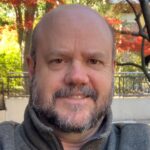
John Kupfer
Dr. John Kupfer is a highly productive landscape ecologist working at the interface between biogeography, ecology, and geographical information sciences. He has published over 70 papers addressing how ecological patterns and processes are shaped by gradients in environmental conditions, by disturbances such as floods and fires, and by human activities. His research is policy-relevant and actional science. In this way, he is leading biogeography into environmentally important and exciting areas for the 21st century. His research has been recognized twice by the Henry Cowles Award for Excellence in Publication from the Biogeography Specialty Group of the AAG. He is also an award-winning teacher. Additionally, he has provided valuable service to the AAG on numerous committees that include the Governing Council, the Search Committee for the Executive Director of the AAG, the Presidential Taskforce on the State of AAG Regions, and the Honors and Publications committees. He was also president of the Biogeography Specialty Group. The AAG is very proud to recognize Dr. John Kupfer as an AAG Fellow.

2025 AAG Fellows
John Kupfer
2025 AAG Fellows
Dr. John Kupfer is a highly productive landscape ecologist working at the interface between biogeography, ecology, and geographical information sciences. He has published over 70 papers addressing how ecological patterns and processes are shaped by gradients in environmental conditions, by disturbances such as floods and fires, and by human activities. His research is policy-relevant and actional science. In this way, he is leading biogeography into environmentally important and exciting areas for the 21st century. His research has been recognized twice by the Henry Cowles Award for Excellence in Publication from the Biogeography Specialty Group of the AAG. He is also an award-winning teacher. Additionally, he has provided valuable service to the AAG on numerous committees that include the Governing Council, the Search Committee for the Executive Director of the AAG, the Presidential Taskforce on the State of AAG Regions, and the Honors and Publications committees. He was also president of the Biogeography Specialty Group. The AAG is very proud to recognize Dr. John Kupfer as an AAG Fellow.
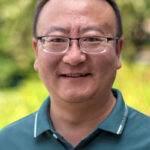
Zhenlong Li
Dr. Zhenlong Li is an associate professor in the Department of Geography at Pennsylvania State University and leads the Geoinformation and Big Data Research Laboratory. He is a leading scholar in GIScience focusing on geospatial big data, spatial computing, and geospatial AI. His research aims to enhance knowledge discovery and decision-making regarding hazards, public health, population mobility, and climate change. His work is widely recognized with over 100 well-cited articles published in top-tier international journals, supported by extensive research grants from prestigious sponsors including NSF and NIH. Dr. Li emphasizes equipping future GIScientists with strong problem-solving abilities by integrating spatial and computational thinking in his teaching and advising, and a number of his mentees have secured prominent academic and professional positions. He currently serves as an associate editor of the International Journal of Digital Earth and International Journal of Applied Earth Observation and Geoinformation. Previously, he served as the Chair of the AAG Cyberinfrastructure Specialty Group and co-Chair of Earth Science Information Partnership (ESIP) Cloud Computing Group. Dr. Li’s significant contributions to the advancement of GIScience and his role as a rising leader in the discipline make him a valued member of the geography community and a deserving recipient of the AAG Fellow distinction.

2025 AAG Fellows
Zhenlong Li
2025 AAG Fellows
Dr. Zhenlong Li is an associate professor in the Department of Geography at Pennsylvania State University and leads the Geoinformation and Big Data Research Laboratory. He is a leading scholar in GIScience focusing on geospatial big data, spatial computing, and geospatial AI. His research aims to enhance knowledge discovery and decision-making regarding hazards, public health, population mobility, and climate change. His work is widely recognized with over 100 well-cited articles published in top-tier international journals, supported by extensive research grants from prestigious sponsors including NSF and NIH. Dr. Li emphasizes equipping future GIScientists with strong problem-solving abilities by integrating spatial and computational thinking in his teaching and advising, and a number of his mentees have secured prominent academic and professional positions. He currently serves as an associate editor of the International Journal of Digital Earth and International Journal of Applied Earth Observation and Geoinformation. Previously, he served as the Chair of the AAG Cyberinfrastructure Specialty Group and co-Chair of Earth Science Information Partnership (ESIP) Cloud Computing Group. Dr. Li’s significant contributions to the advancement of GIScience and his role as a rising leader in the discipline make him a valued member of the geography community and a deserving recipient of the AAG Fellow distinction.
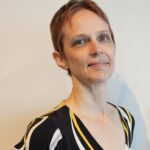
Corene Matyas
Dr. Corene Matyas has dedicated their career to producing exceptional, community relevant climate research and communication, guiding and mentoring the future generations of geography and climatology scholars, and creating space for marginalized peoples in the discipline. Dr. Matyas’ research studying the precipitation patterns within hurricanes is critically important as we increasingly need to understand heavy precipitation landfalls and how human perceptions of perceived risk impact assessments and actions in the face of these storms. Dr. Matyas’ research is coupled with their exceptional teaching. They have won teaching awards at both the college and disciplinary level and winning the College of Liberal Arts and Sciences Teacher of the Year Award and the SEDAAG Excellence in Teaching Award a decade apart is a testament to the sustained impact Dr. Matyas has made in teaching and guiding students. It is this dedicated service to the future of our discipline that is a throughline for Dr. Matyas’s career. Their service as a judge for student competitions, organizer for specialty groups and societies that make space for marginalized, underrepresented scholars in geography, and their consistent mentorship of students in the classroom as well as involving them in research is inspiring. They also communicate science to diverse audiences through visual arts.

2025 AAG Fellows
Corene Matyas
2025 AAG Fellows
Dr. Corene Matyas has dedicated their career to producing exceptional, community relevant climate research and communication, guiding and mentoring the future generations of geography and climatology scholars, and creating space for marginalized peoples in the discipline. Dr. Matyas’ research studying the precipitation patterns within hurricanes is critically important as we increasingly need to understand heavy precipitation landfalls and how human perceptions of perceived risk impact assessments and actions in the face of these storms. Dr. Matyas’ research is coupled with their exceptional teaching. They have won teaching awards at both the college and disciplinary level and winning the College of Liberal Arts and Sciences Teacher of the Year Award and the SEDAAG Excellence in Teaching Award a decade apart is a testament to the sustained impact Dr. Matyas has made in teaching and guiding students. It is this dedicated service to the future of our discipline that is a throughline for Dr. Matyas’s career. Their service as a judge for student competitions, organizer for specialty groups and societies that make space for marginalized, underrepresented scholars in geography, and their consistent mentorship of students in the classroom as well as involving them in research is inspiring. They also communicate science to diverse audiences through visual arts.
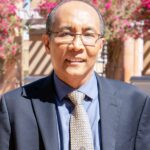
Soe Myint
Dr. Myint is a leader in the use of remote sensing and geographic information science to understand coupled human-environment systems in the context of natural hazards, land change, urban sustainability, and environmental management. He has won accolades from organizations including the United States Geological Survey, the University Consortium of Geographic Information Science, and the American Association of Geographers (AAG) Remote Sensing Specialty Group. Dr. Myint has made great efforts to sustain and advance justice, diversity, equity, and inclusion in geography including giving talks at minority-serving schools in under-resourced communities and serving as the founding Chair of his school DEI committee. Dr. Myint has an extensive record of service to the AAG Remote Sensing Specialty Group, including chair, vice chair, director, special session organizer, and judge for student paper competitions (2009, 2015). He was also invited by AAG to help lead a joint workshop organized by AAG, NASA, and USAID as part of the My Community Our Earth (MyCOE) fellowship initiative that focused on climate change and sustainable landscapes in Asia. Dr. Myint has a long and distinguished track record of teaching and mentoring.

2025 AAG Fellows
Soe Myint
2025 AAG Fellows
Dr. Myint is a leader in the use of remote sensing and geographic information science to understand coupled human-environment systems in the context of natural hazards, land change, urban sustainability, and environmental management. He has won accolades from organizations including the United States Geological Survey, the University Consortium of Geographic Information Science, and the American Association of Geographers (AAG) Remote Sensing Specialty Group. Dr. Myint has made great efforts to sustain and advance justice, diversity, equity, and inclusion in geography including giving talks at minority-serving schools in under-resourced communities and serving as the founding Chair of his school DEI committee. Dr. Myint has an extensive record of service to the AAG Remote Sensing Specialty Group, including chair, vice chair, director, special session organizer, and judge for student paper competitions (2009, 2015). He was also invited by AAG to help lead a joint workshop organized by AAG, NASA, and USAID as part of the My Community Our Earth (MyCOE) fellowship initiative that focused on climate change and sustainable landscapes in Asia. Dr. Myint has a long and distinguished track record of teaching and mentoring.
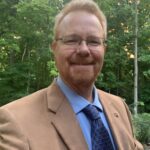
Christian Renschler
Dr. Chris S. Renschler is a Supervisory Research Soil Scientist at USDA’s Agricultural Research Service (ARS) National Soil Erosion Research Laboratory (NSERL), following a distinguished 20-year academic career with positions at eight universities on four continents, encompassing research, teaching, and outreach. As the NSERL Research Leader he leads and coordinates science and stakeholder engagement activities to develop the knowledge and technology needed by land users to conserve natural resources for future generations. A Fulbright Scholar, he is internationally recognized for his expertise in soil and water conservation, integrated watershed management, extreme events, and natural resources and hazards management, utilizing GIS and Remote Sensing technologies. His research and stakeholder engagement activities involve the development, validation, and application of integrated hydrology and erosion modeling tools, created collaboratively with scientists, engineers, and practitioners, to facilitate effective decision-making in the context of global climate change, extreme weather events, community resilience, and evolving land use and land cover patterns. Dr. Renschler has exhibited a strong commitment to service within the AAG and has held multiple leadership positions within the AAG, including chair of the Geomorphology Specialty Group, where he played a pivotal role in fostering collaboration and in advancing the group’s career development, research, and awards programs. He is an editorial board member of the Journal of Earth Science Informatics and Remote Sensing. Dr. Renschler is a past recipient of an Achievement in GIS Award from the Environmental Systems Research Institute (ESRI) and currently serves as the president of the International Soil Conservation Organization (ISCO).

2025 AAG Fellows
Christian Renschler
2025 AAG Fellows
Dr. Chris S. Renschler is a Supervisory Research Soil Scientist at USDA’s Agricultural Research Service (ARS) National Soil Erosion Research Laboratory (NSERL), following a distinguished 20-year academic career with positions at eight universities on four continents, encompassing research, teaching, and outreach. As the NSERL Research Leader he leads and coordinates science and stakeholder engagement activities to develop the knowledge and technology needed by land users to conserve natural resources for future generations. A Fulbright Scholar, he is internationally recognized for his expertise in soil and water conservation, integrated watershed management, extreme events, and natural resources and hazards management, utilizing GIS and Remote Sensing technologies. His research and stakeholder engagement activities involve the development, validation, and application of integrated hydrology and erosion modeling tools, created collaboratively with scientists, engineers, and practitioners, to facilitate effective decision-making in the context of global climate change, extreme weather events, community resilience, and evolving land use and land cover patterns. Dr. Renschler has exhibited a strong commitment to service within the AAG and has held multiple leadership positions within the AAG, including chair of the Geomorphology Specialty Group, where he played a pivotal role in fostering collaboration and in advancing the group’s career development, research, and awards programs. He is an editorial board member of the Journal of Earth Science Informatics and Remote Sensing. Dr. Renschler is a past recipient of an Achievement in GIS Award from the Environmental Systems Research Institute (ESRI) and currently serves as the president of the International Soil Conservation Organization (ISCO).
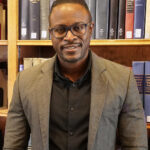
Kevon Rhiney
Dr. Kevon Rhiney is a mid-career scholar with an impressive record of research, leadership, mentorship, and service to the AAG. Dr. Rhiney is associate professor of Human-Environment Geography at Rutgers University and was previously on the faculty at The University of the West Indies (Jamaica). One of the leading Caribbean scholars, Dr. Rhiney has enhance understanding of small-island agrarian political ecology, critical disaster studies, and the human dimensions of global environmental change. This has included groundbreaking research on coupled human-environmental impacts of global change on smallholder coffee production. Dr. Rhiney’s service to the discipline notably includes work as editor of the journal Geography Compass, as co-founder and past chair of the AAG Caribbean Geography Specialty Group, and as a former board member and director for the AAG Development Geographies Specialty Group. His teaching and mentorship reflect a commitment to advancing the field of geography and enriching geographic education on the Caribbean as an understudied region. Dr. Rhiney has been especially active in the recruitment and mentorship of international students and students who enhance the diversity of geography. His expertise in formulating policies has been sought by highly influential organizations such as the IPCC, USAID, and the United Nations Food and Agriculture Organization, which speaks to how Dr. Rhiney’s scholarship has reached into the influential circles beyond the academy.

2025 AAG Fellows
Kevon Rhiney
2025 AAG Fellows
Dr. Kevon Rhiney is a mid-career scholar with an impressive record of research, leadership, mentorship, and service to the AAG. Dr. Rhiney is associate professor of Human-Environment Geography at Rutgers University and was previously on the faculty at The University of the West Indies (Jamaica). One of the leading Caribbean scholars, Dr. Rhiney has enhance understanding of small-island agrarian political ecology, critical disaster studies, and the human dimensions of global environmental change. This has included groundbreaking research on coupled human-environmental impacts of global change on smallholder coffee production. Dr. Rhiney’s service to the discipline notably includes work as editor of the journal Geography Compass, as co-founder and past chair of the AAG Caribbean Geography Specialty Group, and as a former board member and director for the AAG Development Geographies Specialty Group. His teaching and mentorship reflect a commitment to advancing the field of geography and enriching geographic education on the Caribbean as an understudied region. Dr. Rhiney has been especially active in the recruitment and mentorship of international students and students who enhance the diversity of geography. His expertise in formulating policies has been sought by highly influential organizations such as the IPCC, USAID, and the United Nations Food and Agriculture Organization, which speaks to how Dr. Rhiney’s scholarship has reached into the influential circles beyond the academy.
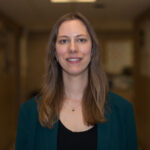
Emily Rosenman
Dr. Emily Rosenman is a committed and creative economic geographer with interests in urban political economy and geographies of humanitarian finance. These are exciting areas that are already advancing established geographic subfields. Her latest research applies economic geography to the US opioid epidemic, examining how pharmaceutical companies exploited health disparities for profit and identifying policy and regulatory interventions that could prevent future harm. Dr. Rosenman is the 2023-24 chair of the Economic Geography Specialty Group (having previously served as treasurer and vice chair), where she has prioritized advancing the causes of equity, diversity, and inclusion, focusing particularly on the contributions of early-career researchers. She has led the creation of an early-career keynote lecture in economic geography now held annually at AAG. She has also developed a program for undergraduate students of color from across the United States to receive mentorship on applying to graduate school in geography. These new initiatives are deeply integrated into her evolving program of scholarship, where she has written on the politics of representation and citations in economic geography, the limits of engaged pluralism, and a framework for economic geography to become more publicly engaged. With a defining interest in contemporary policy problems, Dr. Rosenman is not just a critic, but a builder of alternative ideas and institutions. The AAG is very proud to recognize Dr. Emily Rosenman as an AAG Fellow.

2025 AAG Fellows
Emily Rosenman
2025 AAG Fellows
Dr. Emily Rosenman is a committed and creative economic geographer with interests in urban political economy and geographies of humanitarian finance. These are exciting areas that are already advancing established geographic subfields. Her latest research applies economic geography to the US opioid epidemic, examining how pharmaceutical companies exploited health disparities for profit and identifying policy and regulatory interventions that could prevent future harm. Dr. Rosenman is the 2023-24 chair of the Economic Geography Specialty Group (having previously served as treasurer and vice chair), where she has prioritized advancing the causes of equity, diversity, and inclusion, focusing particularly on the contributions of early-career researchers. She has led the creation of an early-career keynote lecture in economic geography now held annually at AAG. She has also developed a program for undergraduate students of color from across the United States to receive mentorship on applying to graduate school in geography. These new initiatives are deeply integrated into her evolving program of scholarship, where she has written on the politics of representation and citations in economic geography, the limits of engaged pluralism, and a framework for economic geography to become more publicly engaged. With a defining interest in contemporary policy problems, Dr. Rosenman is not just a critic, but a builder of alternative ideas and institutions. The AAG is very proud to recognize Dr. Emily Rosenman as an AAG Fellow.
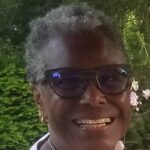
Rickie Sanders
Dr. Rickie Sanders is a trailblazer in feminist and anti-racist human geography. Dr. Sanders is now professor emerita in the Department of Geography, Environment and Urban Studies at Temple University. She has the distinction of being the first Black woman in the United States to earn a Ph.D. in Geography and the first Black woman to reach the rank of full professor in an American geography department. Dr. Sanders has had a distinguished career of making metamorphic contributions to human geography, urban studies, women’s, gender, and feminist studies, and Black studies. Through her scholarship, mentorship, and service at different levels, Dr. Sanders has advanced diversity, equity, and inclusion within the discipline and has promoted initiatives that have expanded geography education. Dr. Sanders has established persistent intellectual and political commitments that have contributed to the development and institutionalization of what we now call Black Geographies. As such, her scholarship has provided critical texts, methodologies, theoretical frameworks, and practices of community-engaged practice and that have been instructive for a wave of Black geographers and geographers studying race and place. Her mentorship and advocacy have been characterized by an energetic commitment to recruiting, charting paths for, and improving the retention of Black women, women of color, and Black men within geography. Tellingly, the Feminist Geographies Specialty Group of the AAG, created a named award in her honor, the Rickie Sanders Junior Faculty Award, in recognition of intersectional-anti-racist feminist geographies.

2025 AAG Fellows
Rickie Sanders
2025 AAG Fellows
Dr. Rickie Sanders is a trailblazer in feminist and anti-racist human geography. Dr. Sanders is now professor emerita in the Department of Geography, Environment and Urban Studies at Temple University. She has the distinction of being the first Black woman in the United States to earn a Ph.D. in Geography and the first Black woman to reach the rank of full professor in an American geography department. Dr. Sanders has had a distinguished career of making metamorphic contributions to human geography, urban studies, women’s, gender, and feminist studies, and Black studies. Through her scholarship, mentorship, and service at different levels, Dr. Sanders has advanced diversity, equity, and inclusion within the discipline and has promoted initiatives that have expanded geography education. Dr. Sanders has established persistent intellectual and political commitments that have contributed to the development and institutionalization of what we now call Black Geographies. As such, her scholarship has provided critical texts, methodologies, theoretical frameworks, and practices of community-engaged practice and that have been instructive for a wave of Black geographers and geographers studying race and place. Her mentorship and advocacy have been characterized by an energetic commitment to recruiting, charting paths for, and improving the retention of Black women, women of color, and Black men within geography. Tellingly, the Feminist Geographies Specialty Group of the AAG, created a named award in her honor, the Rickie Sanders Junior Faculty Award, in recognition of intersectional-anti-racist feminist geographies.
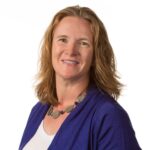
Jane Southworth
Dr. Southworth is a leader in land change, human-environment dynamics, geographic information science, and remote sensing; and more recently the thoughtful engagement with artificial intelligence and big data to address pressing environmental challenges. Her research exemplifies how scholarship can be performed by highly interdisciplinary research teams that involve both social and environmental scientists. She has worked to broaden diversity and inclusion in AAG, especially in terms of transforming remote sensing in the AAG and beyond to be more inclusive of women, and founding and directing the Women in Geography group at the University of Florida. She has served as a Department Chair for 9 years, where she built a track record of incorporating and implementing innovative ideas to expand geography’s standing within the college and beyond. She serves on the AAG task force on nurturing undergraduate geography education and is a past winner of the Association’s E. Willard and Ruby S. Miller Award. She is a sought-after mentor and has shepherded dozens of master’s and doctoral graduate students who have gone on to significant positions in academia, government, and industry.

2025 AAG Fellows
Jane Southworth
2025 AAG Fellows
Dr. Southworth is a leader in land change, human-environment dynamics, geographic information science, and remote sensing; and more recently the thoughtful engagement with artificial intelligence and big data to address pressing environmental challenges. Her research exemplifies how scholarship can be performed by highly interdisciplinary research teams that involve both social and environmental scientists. She has worked to broaden diversity and inclusion in AAG, especially in terms of transforming remote sensing in the AAG and beyond to be more inclusive of women, and founding and directing the Women in Geography group at the University of Florida. She has served as a Department Chair for 9 years, where she built a track record of incorporating and implementing innovative ideas to expand geography’s standing within the college and beyond. She serves on the AAG task force on nurturing undergraduate geography education and is a past winner of the Association’s E. Willard and Ruby S. Miller Award. She is a sought-after mentor and has shepherded dozens of master’s and doctoral graduate students who have gone on to significant positions in academia, government, and industry.
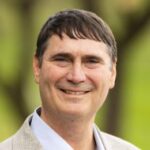
Robert Stewart
Robert Stewart is a Distinguished Scientist in the Spatial Statistics group at the Oak Ridge National Laboratory and a professor in the Bredesen Center Data Science Track at the University of Tennessee, Knoxville. His research primarily centers on the geospatial dimensions of risk and decision-making under uncertainty, applying methods from spatial statistics, machine learning, and Bayesian reasoning. Robert’s research has made significant impact on a wide variety of applications including population dynamics, environmental risk, maritime safety, transport risk, built environment characterization, and change detection. He is chair of the IEEE Computational Intelligence Society’s Government Activities Committee. He is an editorial board member of the Journal Transactions in GIS and the International Journal of Geographical Information Science. Robert serves as advisor to the Organisation for Economic Cooperation and Development’s Nuclear Energy Agency as well as the Alan Turing Institute’s Colouring Cities Research Program. He has also chaired the AAG’s Geographic Information Science and Systems Specialty Group at AAG and has served as ORNL liaison to the World Health Organization Chemical Risk Network. Robert remains passionate about mentoring and advising the next generation of geospatial scientists. He has mentored many early and mid-career scientists and served on a number of graduate committees located across multiple departments and universities.

2025 AAG Fellows
Robert Stewart
2025 AAG Fellows
Robert Stewart is a Distinguished Scientist in the Spatial Statistics group at the Oak Ridge National Laboratory and a professor in the Bredesen Center Data Science Track at the University of Tennessee, Knoxville. His research primarily centers on the geospatial dimensions of risk and decision-making under uncertainty, applying methods from spatial statistics, machine learning, and Bayesian reasoning. Robert’s research has made significant impact on a wide variety of applications including population dynamics, environmental risk, maritime safety, transport risk, built environment characterization, and change detection. He is chair of the IEEE Computational Intelligence Society’s Government Activities Committee. He is an editorial board member of the Journal Transactions in GIS and the International Journal of Geographical Information Science. Robert serves as advisor to the Organisation for Economic Cooperation and Development’s Nuclear Energy Agency as well as the Alan Turing Institute’s Colouring Cities Research Program. He has also chaired the AAG’s Geographic Information Science and Systems Specialty Group at AAG and has served as ORNL liaison to the World Health Organization Chemical Risk Network. Robert remains passionate about mentoring and advising the next generation of geospatial scientists. He has mentored many early and mid-career scientists and served on a number of graduate committees located across multiple departments and universities.
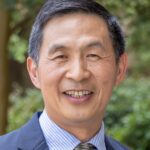
Fahui Wang
Dr. Fahui Wang, renowned GIScientist, has made seminal contributions to the development and application of spatial analysis methods for understanding spatial and social injustices in health, well-being, and access to services. He pioneered, and continues to advance, the field of spatial accessibility modeling through his work on ‘floating catchment’ methods, and their variants, that have become the gold standard in the field. Adopted by planners and analysts who evaluate health care workforce inequalities and disparities in access, his modeling approaches stand out for their policy relevance and broad impacts. Dr. Wang’s rigorous empirical research identifies communities lacking access to essential health services and informs where and how access can be improved. Organizations that have benefited from his leadership and his energy and passion for the discipline include the AAG’s Spatial Analysis and Modeling & Health and Medical Geography Specialty Groups and the International Association for Chinese Professionals in GIScience. As department chair, he led initiatives that have greatly increased the diversity of departmental faculty and provided supportive mentorship to students from underrepresented backgrounds who faced significant obstacles to success.

2025 AAG Fellows
Fahui Wang
2025 AAG Fellows
Dr. Fahui Wang, renowned GIScientist, has made seminal contributions to the development and application of spatial analysis methods for understanding spatial and social injustices in health, well-being, and access to services. He pioneered, and continues to advance, the field of spatial accessibility modeling through his work on ‘floating catchment’ methods, and their variants, that have become the gold standard in the field. Adopted by planners and analysts who evaluate health care workforce inequalities and disparities in access, his modeling approaches stand out for their policy relevance and broad impacts. Dr. Wang’s rigorous empirical research identifies communities lacking access to essential health services and informs where and how access can be improved. Organizations that have benefited from his leadership and his energy and passion for the discipline include the AAG’s Spatial Analysis and Modeling & Health and Medical Geography Specialty Groups and the International Association for Chinese Professionals in GIScience. As department chair, he led initiatives that have greatly increased the diversity of departmental faculty and provided supportive mentorship to students from underrepresented backgrounds who faced significant obstacles to success.
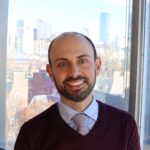
Michael Widener
Dr. Michael Widener, professor of Geography and Planning at the University of Toronto, has made original and ground-breaking contributions to health and transportation geography and provided visionary leadership and disciplinary and community service. His research has significantly shaped understandings of the social, spatial, and temporal dimensions of inequalities in food access. Combining rigorous quantitative modeling with thoughtful critical analysis, his research challenges well-worn concepts in the food access literature such as “food deserts.” He has engaged students and researchers with community partners to improve food access and health outcomes for equity–deserving populations in Toronto and across Canada. In his university leadership positions, Dr. Widener has spearheaded initiatives to support and mentor junior faculty; developed innovative curricula in key areas; tackled barriers faced by underrepresented students; and expanded research and educational ties with diverse communities. His international leadership is reflected in his service to the AAG’s Health and Medical Geography Specialty Group; co-editorship of Health and Place; and extensive committee service. An engaged and passionate mentor, Dr. Widener has worked tirelessly to build community among his students, in his department, and across the discipline of geography.

2025 AAG Fellows
Michael Widener
2025 AAG Fellows
Dr. Michael Widener, professor of Geography and Planning at the University of Toronto, has made original and ground-breaking contributions to health and transportation geography and provided visionary leadership and disciplinary and community service. His research has significantly shaped understandings of the social, spatial, and temporal dimensions of inequalities in food access. Combining rigorous quantitative modeling with thoughtful critical analysis, his research challenges well-worn concepts in the food access literature such as “food deserts.” He has engaged students and researchers with community partners to improve food access and health outcomes for equity–deserving populations in Toronto and across Canada. In his university leadership positions, Dr. Widener has spearheaded initiatives to support and mentor junior faculty; developed innovative curricula in key areas; tackled barriers faced by underrepresented students; and expanded research and educational ties with diverse communities. His international leadership is reflected in his service to the AAG’s Health and Medical Geography Specialty Group; co-editorship of Health and Place; and extensive committee service. An engaged and passionate mentor, Dr. Widener has worked tirelessly to build community among his students, in his department, and across the discipline of geography.
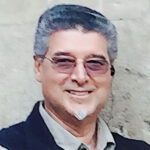
Daniel Arreola
Dr. Daniel Arreola is an emeritus professor at the School of Geographical Sciences and Urban Planning at Arizona State University. He is a prolific scholar who focuses on the Hispanic experience of the American Southwest and the Mexican border. Several of his seven books have won major AAG awards, and he is described as knowing the Mexican American borderlands better than anybody else. He has passed his passion on to his students and is widely considered to be an outstanding educator. Dr. Arreola served the AAG through his long-standing engagement with the APCG. He was instrumental in designing the AP Human Geography course, thus leaving his mark on the geography education of countless young geographers.

2024 AAG Fellows
Daniel Arreola
2024 AAG Fellows
Dr. Daniel Arreola is an emeritus professor at the School of Geographical Sciences and Urban Planning at Arizona State University. He is a prolific scholar who focuses on the Hispanic experience of the American Southwest and the Mexican border. Several of his seven books have won major AAG awards, and he is described as knowing the Mexican American borderlands better than anybody else. He has passed his passion on to his students and is widely considered to be an outstanding educator. Dr. Arreola served the AAG through his long-standing engagement with the APCG. He was instrumental in designing the AP Human Geography course, thus leaving his mark on the geography education of countless young geographers.
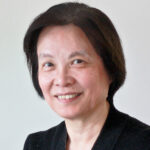
Ling Bian
Dr. Ling Bian is a leading GIScientist whose extensive research, service, and outreach efforts, over three decades, have contributed greatly to the growth and development of quantitative approaches in geography. Her many research contributions include the development of a ground-breaking spatio-temporal approach for modeling the spread of communicable diseases among people and through social networks – an approach that has high relevance to understanding COVID-19 spread. Dr. Bian has provided outstanding service to our community through her leadership in national GIScience initiatives, her participation in national and international committees, and her dedicated efforts as section editor of the Annals of the AAG. She led a program to teach web GIS to high school students, creating pathways into geospatial careers for students from diverse backgrounds.

2024 AAG Fellows
Ling Bian
2024 AAG Fellows
Dr. Ling Bian is a leading GIScientist whose extensive research, service, and outreach efforts, over three decades, have contributed greatly to the growth and development of quantitative approaches in geography. Her many research contributions include the development of a ground-breaking spatio-temporal approach for modeling the spread of communicable diseases among people and through social networks – an approach that has high relevance to understanding COVID-19 spread. Dr. Bian has provided outstanding service to our community through her leadership in national GIScience initiatives, her participation in national and international committees, and her dedicated efforts as section editor of the Annals of the AAG. She led a program to teach web GIS to high school students, creating pathways into geospatial careers for students from diverse backgrounds.

Heejun Chang
Dr. Heejun Chang is an accomplished geographer who has achieved the highest levels of scholarship, practice, and service. His research focused on human modifications of hydrologic systems (including climate change), its impacts on society, and spatial integrative methodological approaches has produced more than 170 well-cited publications and over 100 invited talks. Chang is recognized with major awards that include the Abe Fellowship from the Social Science Research Council and Japan Foundation, Sigma-Xi, and the E. Willard and Ruby S. Millar Award from the American Association of Geographers (AAG). Mentoring graduate and undergraduate students is also among Dr. Chang’s exceptional work, which also includes many publications co-authored with students. Additionally, during service as chair of the Geography Department at Portland State University, Chang was instrumental in substantially enhancing the diversity of its faculty. A 25-year member of the AAG, Chang has also provided leadership as Chair of the Spatial Analysis and Modeling Specialty Group, board member of the Water Resources Specialty Group, organizer of numerous special sessions, and editor-in-chief of the Professional Geographer.

2024 AAG Fellows
Heejun Chang
2024 AAG Fellows
Dr. Heejun Chang is an accomplished geographer who has achieved the highest levels of scholarship, practice, and service. His research focused on human modifications of hydrologic systems (including climate change), its impacts on society, and spatial integrative methodological approaches has produced more than 170 well-cited publications and over 100 invited talks. Chang is recognized with major awards that include the Abe Fellowship from the Social Science Research Council and Japan Foundation, Sigma-Xi, and the E. Willard and Ruby S. Millar Award from the American Association of Geographers (AAG). Mentoring graduate and undergraduate students is also among Dr. Chang’s exceptional work, which also includes many publications co-authored with students. Additionally, during service as chair of the Geography Department at Portland State University, Chang was instrumental in substantially enhancing the diversity of its faculty. A 25-year member of the AAG, Chang has also provided leadership as Chair of the Spatial Analysis and Modeling Specialty Group, board member of the Water Resources Specialty Group, organizer of numerous special sessions, and editor-in-chief of the Professional Geographer.

Min Chen
Dr. Min Chen, professor of geography at Nanjing Normal University, is a leading mid-career scholar in the field of GIScience. With his boundless energy and vision, Dr. Chen has played a key role in building and sustaining GIScience through his extensive research and service activities. Co-author of more than 180 publications, he is widely known for his development of a model-sharing and collaborative simulation platform that facilitates knowledge-building in an open web environment. As executive editor of the Annals of GIS, he has greatly elevated the journal’s profile, making it a leading outlet for GIScience research worldwide. His leadership in various AAG specialty groups and international GIS organizations like the International Association of Chinese Professionals in GIScience have greatly advanced GIS scholarship and provided essential support for emerging scholars in the field.

2024 AAG Fellows
Min Chen
2024 AAG Fellows
Dr. Min Chen, professor of geography at Nanjing Normal University, is a leading mid-career scholar in the field of GIScience. With his boundless energy and vision, Dr. Chen has played a key role in building and sustaining GIScience through his extensive research and service activities. Co-author of more than 180 publications, he is widely known for his development of a model-sharing and collaborative simulation platform that facilitates knowledge-building in an open web environment. As executive editor of the Annals of GIS, he has greatly elevated the journal’s profile, making it a leading outlet for GIScience research worldwide. His leadership in various AAG specialty groups and international GIS organizations like the International Association of Chinese Professionals in GIScience have greatly advanced GIS scholarship and provided essential support for emerging scholars in the field.
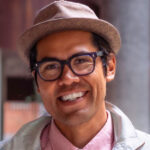
Andrew Curley
Andrew Curley is an exceptional early career geographer at the University of Arizona who has been instrumental in supporting the recent growth of Indigenous Geographies and the community of Indigenous geographers within the AAG. A member of the Navajo (Diné) Nation, Dr. Curley has been an exceptional mentor for new Indigenous geographers, as well as scholars of energy and political geographies. His research focuses on addressing urgent questions relating Indigenous sovereignty, climate change, and development. He is also one of a group of new political ecologists, who focus their work on questions of tribal sovereignty. He has been particularly involved in public facing scholarship among the Diné.

2024 AAG Fellows
Andrew Curley
2024 AAG Fellows
Andrew Curley is an exceptional early career geographer at the University of Arizona who has been instrumental in supporting the recent growth of Indigenous Geographies and the community of Indigenous geographers within the AAG. A member of the Navajo (Diné) Nation, Dr. Curley has been an exceptional mentor for new Indigenous geographers, as well as scholars of energy and political geographies. His research focuses on addressing urgent questions relating Indigenous sovereignty, climate change, and development. He is also one of a group of new political ecologists, who focus their work on questions of tribal sovereignty. He has been particularly involved in public facing scholarship among the Diné.

Kate Derickson
Dr. Kate Derickson is an outstanding geographer who has significantly advanced the discipline through innovative, community-engaged scholarship that tackles urgent issues of environmental justice, urban development, racism, and climate change with and for impacted communities. She has developed a rigorous research record that includes contributions to the top journals in geography, distinguished by the significance of community engagement. Derickson is perhaps best known for developing and applying the concept of “resourcefulness”—articulated in an article in Progress in Human Geography with over 1,200 citations—that directs researchers and university leaders to prioritize capacity building of community partners to participate in research design and policy advocacy. She also co-founded the CREATE (Co-Developing Research and Engaged Approaches to Transform Environments) Initiative, a multifaceted program to advance research and education at the intersection of equity and environment through community engagement, interdisciplinary scholarship, and graduate training. Her extensive efforts in training the next generation of community-engaged scholars are reflected in the Community Engaged Scholarship Award from the University of Minnesota. For the American Association of Geographers, Derickson has also demonstrated leadership as Chair of the Socialist and Critical Geography Specialty Group and as member of the Awards Committee and Editorial Board of the Annals of the AAG. She was also Convener of the Antipode Summer Institute. Derickson has a record of path-breaking scholarly interventions in urban theory and community engaged research and for radically opening spaces in the discipline for junior scholars.

2024 AAG Fellows
Kate Derickson
2024 AAG Fellows
Dr. Kate Derickson is an outstanding geographer who has significantly advanced the discipline through innovative, community-engaged scholarship that tackles urgent issues of environmental justice, urban development, racism, and climate change with and for impacted communities. She has developed a rigorous research record that includes contributions to the top journals in geography, distinguished by the significance of community engagement. Derickson is perhaps best known for developing and applying the concept of “resourcefulness”—articulated in an article in Progress in Human Geography with over 1,200 citations—that directs researchers and university leaders to prioritize capacity building of community partners to participate in research design and policy advocacy. She also co-founded the CREATE (Co-Developing Research and Engaged Approaches to Transform Environments) Initiative, a multifaceted program to advance research and education at the intersection of equity and environment through community engagement, interdisciplinary scholarship, and graduate training. Her extensive efforts in training the next generation of community-engaged scholars are reflected in the Community Engaged Scholarship Award from the University of Minnesota. For the American Association of Geographers, Derickson has also demonstrated leadership as Chair of the Socialist and Critical Geography Specialty Group and as member of the Awards Committee and Editorial Board of the Annals of the AAG. She was also Convener of the Antipode Summer Institute. Derickson has a record of path-breaking scholarly interventions in urban theory and community engaged research and for radically opening spaces in the discipline for junior scholars.
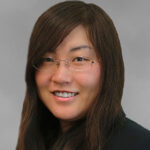
Chunyuan Diao
Dr. Chunyuan Diao is an outstanding early-career scholar whose extensive research contributions and service to the AAG have strengthened and advanced the field of remote sensing and geographers’ roles in it. Her publications in leading journals and extensive grant-funded research activities have creatively advanced our ability to monitor and model ecosystem dynamics across natural, human-natural, and disturbed biogeographical systems at multiple spatial and temporal scales. Dr. Diao’s leadership and service to the AAG Remote Sensing Specialty Group have fostered a supportive and expanding scholarly community; and her effective teaching and mentorship activities are helping to develop a new generation of remote sensing scholars whose gender and race/ethnic diversity more fully represent the populations impacted by global eco-environmental change.

2024 AAG Fellows
Chunyuan Diao
2024 AAG Fellows
Dr. Chunyuan Diao is an outstanding early-career scholar whose extensive research contributions and service to the AAG have strengthened and advanced the field of remote sensing and geographers’ roles in it. Her publications in leading journals and extensive grant-funded research activities have creatively advanced our ability to monitor and model ecosystem dynamics across natural, human-natural, and disturbed biogeographical systems at multiple spatial and temporal scales. Dr. Diao’s leadership and service to the AAG Remote Sensing Specialty Group have fostered a supportive and expanding scholarly community; and her effective teaching and mentorship activities are helping to develop a new generation of remote sensing scholars whose gender and race/ethnic diversity more fully represent the populations impacted by global eco-environmental change.
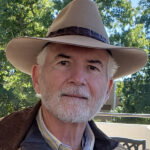
Jerome Dobson
Dr. Jerome E. Dobson is a professor emeritus of geography at the University of Kansas. He has a rare combination of experience in government, academia, and the private sector. He is recognized as a pioneer of Geographic Information Science. He led development of the current world standards for estimating populations at risk during disasters of all sorts and for how landmines and mine fields are represented on maps worldwide. He coined the term “geoslavery” to raise awareness of geospatial technology in human tracking coercively or surreptitiously. Dr. Dobson has a record of dedicated service to AAG, including co-founding the AAG Energy Specialty Group, chairing the Honors Committee and GIS Specialty Group, and serving on the Editorial Board of The Professional Geographer and on various AAG committees. Dr. Dobson served as president of the American Geographical Society. His innovative and diverse scholarship and commitment to helping people across the world through research and action are exemplary. Recently he and two Italian colleagues retrospectively mapped ocean floors from 30,000 BP to the present and digitally discovered scores of islands, which they named the Bering Transitory Archipelago and which may have served as stepping stones for the first crossings from Siberia to Alaska.

2024 AAG Fellows
Jerome Dobson
2024 AAG Fellows
Dr. Jerome E. Dobson is a professor emeritus of geography at the University of Kansas. He has a rare combination of experience in government, academia, and the private sector. He is recognized as a pioneer of Geographic Information Science. He led development of the current world standards for estimating populations at risk during disasters of all sorts and for how landmines and mine fields are represented on maps worldwide. He coined the term “geoslavery” to raise awareness of geospatial technology in human tracking coercively or surreptitiously. Dr. Dobson has a record of dedicated service to AAG, including co-founding the AAG Energy Specialty Group, chairing the Honors Committee and GIS Specialty Group, and serving on the Editorial Board of The Professional Geographer and on various AAG committees. Dr. Dobson served as president of the American Geographical Society. His innovative and diverse scholarship and commitment to helping people across the world through research and action are exemplary. Recently he and two Italian colleagues retrospectively mapped ocean floors from 30,000 BP to the present and digitally discovered scores of islands, which they named the Bering Transitory Archipelago and which may have served as stepping stones for the first crossings from Siberia to Alaska.

Song Gao
Dr. Song Gao is an associate professor of geography and the director of the Geospatial Data Science Lab at the University of Wisconsin Madison. He has established himself as one of the thought leaders and highly cited scholars in the field of geospatial artificial intelligence (GeoAI) and was heavily involved in the geospatial modeling of the spread of COVID-19. He has successfully mentored young scholars and students in GIScience, offered workshops and webinars for the AAG and other organizations, and is an associate editor for AAG’s International Encyclopedia of Geography and International Journal of Geographical Information Science. Dr. Gao’s involvement with cutting-edge data science and AI techniques, his commitment to taking on and solving important challenges, and his enthusiasm for working with different international organizations make him a strong asset to the AAG.

2024 AAG Fellows
Song Gao
2024 AAG Fellows
Dr. Song Gao is an associate professor of geography and the director of the Geospatial Data Science Lab at the University of Wisconsin Madison. He has established himself as one of the thought leaders and highly cited scholars in the field of geospatial artificial intelligence (GeoAI) and was heavily involved in the geospatial modeling of the spread of COVID-19. He has successfully mentored young scholars and students in GIScience, offered workshops and webinars for the AAG and other organizations, and is an associate editor for AAG’s International Encyclopedia of Geography and International Journal of Geographical Information Science. Dr. Gao’s involvement with cutting-edge data science and AI techniques, his commitment to taking on and solving important challenges, and his enthusiasm for working with different international organizations make him a strong asset to the AAG.
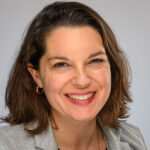
Laura-Anne Minkoff-Zern
Laura-Anne Minkoff-Zern is an exceptional mid-career geographer who is a leader in a growing group of geographers who focus on issues of labor, race, and class within agriculture and food systems. Dr. Minkoff-Zern is the author of two books, one of which, The New American Farmer: Immigration, Race, and the Struggle for Sustainability, tells the story of Mexican and Central American immigrants, who are reshaping American farming by drawing on agricultural knowledge and practices from their home countries. Her second book, Will Work for Food: Labor Across the Food Chain, forthcoming in 2025, looks at exploration of the labor across the food chain, from farms to food processing and into the home, exploring the intersections between sustainability movements and labor organizing. Beyond her excellent research, she is also a leader in the subfield of food and agriculture, having served as chair and in many other roles in the AAG Geographies of Food and Agriculture Specialty Group. In this position she helped steward the specialty group towards new programs, such as a scholarship for community food and agriculture partnership research. As an associate professor in the Food Studies Program and an affiliate of the Department of Geography and the Environment at Syracuse University, she is at the forefront of bridging the disciplines of Geography and Food Studies.

2024 AAG Fellows
Laura-Anne Minkoff-Zern
2024 AAG Fellows
Laura-Anne Minkoff-Zern is an exceptional mid-career geographer who is a leader in a growing group of geographers who focus on issues of labor, race, and class within agriculture and food systems. Dr. Minkoff-Zern is the author of two books, one of which, The New American Farmer: Immigration, Race, and the Struggle for Sustainability, tells the story of Mexican and Central American immigrants, who are reshaping American farming by drawing on agricultural knowledge and practices from their home countries. Her second book, Will Work for Food: Labor Across the Food Chain, forthcoming in 2025, looks at exploration of the labor across the food chain, from farms to food processing and into the home, exploring the intersections between sustainability movements and labor organizing. Beyond her excellent research, she is also a leader in the subfield of food and agriculture, having served as chair and in many other roles in the AAG Geographies of Food and Agriculture Specialty Group. In this position she helped steward the specialty group towards new programs, such as a scholarship for community food and agriculture partnership research. As an associate professor in the Food Studies Program and an affiliate of the Department of Geography and the Environment at Syracuse University, she is at the forefront of bridging the disciplines of Geography and Food Studies.
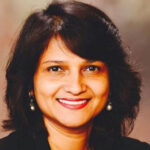
Chandana Mitra
Dr. Chandana Mitra is an associate professor in the Department of Geosciences at Auburn University. She uses her training in urban climate, GIS, and remote sensing to work across disciplinary boundaries on topics such as the sustainability and resilience of cities in the face of climate change. She is committed to addressing STEM education and importance of science communication in her research. She is an advocate for Diversity, Equity, and Inclusion (DEI), for example by mentoring girls interested in STEM at the EmpowHER conference, co-founding GeoFIDE, a DEI organization the Geosciences, and by supporting underrepresented students. Dr. Mitra has held various positions in the AAG’s Asian and Regional Development and Planning Specialty groups and brings a strong commitment to social justice issues and cross-disciplinary approaches to the AAG.

2024 AAG Fellows
Chandana Mitra
2024 AAG Fellows
Dr. Chandana Mitra is an associate professor in the Department of Geosciences at Auburn University. She uses her training in urban climate, GIS, and remote sensing to work across disciplinary boundaries on topics such as the sustainability and resilience of cities in the face of climate change. She is committed to addressing STEM education and importance of science communication in her research. She is an advocate for Diversity, Equity, and Inclusion (DEI), for example by mentoring girls interested in STEM at the EmpowHER conference, co-founding GeoFIDE, a DEI organization the Geosciences, and by supporting underrepresented students. Dr. Mitra has held various positions in the AAG’s Asian and Regional Development and Planning Specialty groups and brings a strong commitment to social justice issues and cross-disciplinary approaches to the AAG.
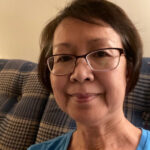
Jessie Poon
Dr. Jessie Poon is among the world’s leading economic geographers, with a substantial record of research that includes four co-authored books and more than one hundred journal articles and book chapters. Her research—from early path-breaking work on the geographical structure of trade patterns and dynamics of regionalization to more recent explorations of social, cultural, financial, and information networks and to digital economies more generally—has been remarkably consistent over the last three decades, with uniformly high-quality writings distributed across leading journals in human geography and into related fields of regional science, business, communications, trade and development, and allied social sciences. In many leadership roles, Poon was also chair of the Regional Studies Association, Committee Member of the Council of the American Association of Geographers (AAG), Chair of the Southeast Section of the Asian Geography Specialty Group, member of the AAG Research Grants Committee, and editor or member of the Editorial Board of numerous top journals in her field. A longtime member of the AAG, Dr. Poon has also worked tirelessly to make geography, and the academy more broadly, a more equitable, diverse, and inclusive community. She has published extensively on the state of women in her field, advocated for other female scholars, championed increasing representation of female scholars in research journals, including editorial boards, while serving as the first female editor of Papers in Regional Science. Her trailblazing efforts have opened space within economic geography for women to both contribute to important debates and flourish while doing so.

2024 AAG Fellows
Jessie Poon
2024 AAG Fellows
Dr. Jessie Poon is among the world’s leading economic geographers, with a substantial record of research that includes four co-authored books and more than one hundred journal articles and book chapters. Her research—from early path-breaking work on the geographical structure of trade patterns and dynamics of regionalization to more recent explorations of social, cultural, financial, and information networks and to digital economies more generally—has been remarkably consistent over the last three decades, with uniformly high-quality writings distributed across leading journals in human geography and into related fields of regional science, business, communications, trade and development, and allied social sciences. In many leadership roles, Poon was also chair of the Regional Studies Association, Committee Member of the Council of the American Association of Geographers (AAG), Chair of the Southeast Section of the Asian Geography Specialty Group, member of the AAG Research Grants Committee, and editor or member of the Editorial Board of numerous top journals in her field. A longtime member of the AAG, Dr. Poon has also worked tirelessly to make geography, and the academy more broadly, a more equitable, diverse, and inclusive community. She has published extensively on the state of women in her field, advocated for other female scholars, championed increasing representation of female scholars in research journals, including editorial boards, while serving as the first female editor of Papers in Regional Science. Her trailblazing efforts have opened space within economic geography for women to both contribute to important debates and flourish while doing so.
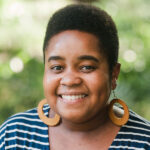
Danielle Purifoy
Danielle Purifoy is an assistant professor in the Department of Geography at the University of North Carolina-Chapel Hill. Despite being just a few years beyond her PhD, she has already established herself as a prominent scholar of Black Geographies, political geography, and legal geographies. She also engages in community work and practical environmental engagement well beyond the university. She studies, in particular, “the making and unmaking of Black Towns,” focusing on their experiences of environmental racism. She found, in particular, that towns in the Southern US often developed two parallel communities, one white and one Black. The Black town was often not included within the incorporated boundaries, allowing for a devastating amount of environmental racism. Beyond this research, Dr. Purifoy is growing leader and mentor within the Black Geographies community, is a co-leader of the Mapping Black Towns project, has been a co-editor of numerous special journal issues, and has given invited lectures at universities around the world. She is truly an impressive early-career geographer.

2024 AAG Fellows
Danielle Purifoy
2024 AAG Fellows
Danielle Purifoy is an assistant professor in the Department of Geography at the University of North Carolina-Chapel Hill. Despite being just a few years beyond her PhD, she has already established herself as a prominent scholar of Black Geographies, political geography, and legal geographies. She also engages in community work and practical environmental engagement well beyond the university. She studies, in particular, “the making and unmaking of Black Towns,” focusing on their experiences of environmental racism. She found, in particular, that towns in the Southern US often developed two parallel communities, one white and one Black. The Black town was often not included within the incorporated boundaries, allowing for a devastating amount of environmental racism. Beyond this research, Dr. Purifoy is growing leader and mentor within the Black Geographies community, is a co-leader of the Mapping Black Towns project, has been a co-editor of numerous special journal issues, and has given invited lectures at universities around the world. She is truly an impressive early-career geographer.
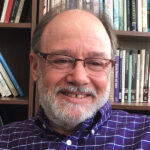
Mark Rosenberg
Dr. Mark Rosenberg is a distinguished health geographer who has been a tireless advocate for geography and geographers throughout his career. His leadership, vision, and enduring commitment to mentorship have propelled the growth and development of health and medical geography. His influential research contributions provide rigorous evidence about how geographical and sociopolitical processes shape unequal access to health care, especially for vulnerable populations. Bringing energy, vision, and leadership to a wide range of national and international geographical organizations, including health geography groups of the AAG, CAG, and IGU, he has offered critical insights and direction that have strongly supported the groups’ health, growth, and development. By effectively mobilizing enthusiasm, wisdom, care, and practical advice, Dr. Rosenberg has excelled in mentoring diverse graduate students and early-career faculty, many of whom have achieved successful careers in health geography research and policy.

2024 AAG Fellows
Mark Rosenberg
2024 AAG Fellows
Dr. Mark Rosenberg is a distinguished health geographer who has been a tireless advocate for geography and geographers throughout his career. His leadership, vision, and enduring commitment to mentorship have propelled the growth and development of health and medical geography. His influential research contributions provide rigorous evidence about how geographical and sociopolitical processes shape unequal access to health care, especially for vulnerable populations. Bringing energy, vision, and leadership to a wide range of national and international geographical organizations, including health geography groups of the AAG, CAG, and IGU, he has offered critical insights and direction that have strongly supported the groups’ health, growth, and development. By effectively mobilizing enthusiasm, wisdom, care, and practical advice, Dr. Rosenberg has excelled in mentoring diverse graduate students and early-career faculty, many of whom have achieved successful careers in health geography research and policy.
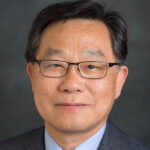
Shih-Lung Shaw
Dr. Shih-Lung Shaw is a leader in the areas of time geography and the applications of GIS to transportation geography. He is current Chancellor’s Professor in the Department of Geography and Sustainability at the University of Tennessee-Knoxville. His research developed a space-time GIS framework, which has been used to analyze a large variety of human dynamics phenomena, including both longtime issues such as travel dynamics and more recent phenomenon such as COVID infection patterns. Beyond his innovative, important, and useful research, Dr. Shaw has been a leader in the AAG. He is a former chair of the Transportation Geography Specialty Group and treasurer of the GIS group, and has been the lead organizer of the Human Dynamics Symposium at AAG annual meetings for eight years. Shih-Lung has also been president of the UCGIS and has been a strong supporter of a project to promote the professional development of women in GIScience.

2024 AAG Fellows
Shih-Lung Shaw
2024 AAG Fellows
Dr. Shih-Lung Shaw is a leader in the areas of time geography and the applications of GIS to transportation geography. He is current Chancellor’s Professor in the Department of Geography and Sustainability at the University of Tennessee-Knoxville. His research developed a space-time GIS framework, which has been used to analyze a large variety of human dynamics phenomena, including both longtime issues such as travel dynamics and more recent phenomenon such as COVID infection patterns. Beyond his innovative, important, and useful research, Dr. Shaw has been a leader in the AAG. He is a former chair of the Transportation Geography Specialty Group and treasurer of the GIS group, and has been the lead organizer of the Human Dynamics Symposium at AAG annual meetings for eight years. Shih-Lung has also been president of the UCGIS and has been a strong supporter of a project to promote the professional development of women in GIScience.
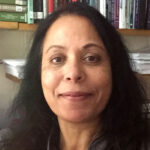
Selima Sultana
Dr. Selima Sultana is Professor and Associate Head in the Department of Geography, Environment, and Sustainability at the University of North Carolina Greensboro. She is an outstanding scholar, a committed member of the AAG, and a mentor to many, specially to early career academics, and women and BIPOC geographers. Her service to the AAG is varied and extensive. She has been President of the AAG Regional Division of Southeast, Chair of the Transportation Geography Specialty Group, served on the AAG Council as Regional Councilor, representing the Southeast Division, Chair of the AAG Publications and the Status of Women in Geography Committees, and co-founder of the new Protected Areas Specialty Group. In addition, Dr. Sultana has been on the editorial board of many publications including The Professional Geographer and Southeastern Geographer, the latter where she served as editor. She is also on the AAG Mentoring Task Force, which highlights her ongoing mentorship. Likewise, at her home campus of UNC Greensboro, she has been a leading mentor to both graduate and undergraduate students. Dr. Sultana’s is also an exceptional researcher focuses on a large variety of social justice issues, including accessibility and the low visitation rates of African Americans at National Parks, and how the changing structure of urban areas increases commuting times for BIPOC women.

2024 AAG Fellows
Selima Sultana
2024 AAG Fellows
Dr. Selima Sultana is Professor and Associate Head in the Department of Geography, Environment, and Sustainability at the University of North Carolina Greensboro. She is an outstanding scholar, a committed member of the AAG, and a mentor to many, specially to early career academics, and women and BIPOC geographers. Her service to the AAG is varied and extensive. She has been President of the AAG Regional Division of Southeast, Chair of the Transportation Geography Specialty Group, served on the AAG Council as Regional Councilor, representing the Southeast Division, Chair of the AAG Publications and the Status of Women in Geography Committees, and co-founder of the new Protected Areas Specialty Group. In addition, Dr. Sultana has been on the editorial board of many publications including The Professional Geographer and Southeastern Geographer, the latter where she served as editor. She is also on the AAG Mentoring Task Force, which highlights her ongoing mentorship. Likewise, at her home campus of UNC Greensboro, she has been a leading mentor to both graduate and undergraduate students. Dr. Sultana’s is also an exceptional researcher focuses on a large variety of social justice issues, including accessibility and the low visitation rates of African Americans at National Parks, and how the changing structure of urban areas increases commuting times for BIPOC women.
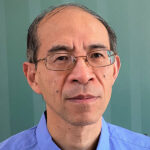
Yehua Dennis Wei
Dr. Yehua Dennis Wei is an internationally renowned urban/economic geographer whose research centers on effects of globalization and institutional change on cities, regions, and sustainability. A pioneer in the study of regional development and regional/ spatial inequality in China, Wei has published five books and more than 250 journal articles and book chapters. He has also edited a dozen journal special issues and served as editor-in-chief of Applied Geography. His awards and honors include the Excellence in Research Award from the University of Wisconsin-Milwaukee, the Distinguished Scholar Award from the Regional Development and Planning Specialty Group of the American Association of Geographers (AAG), the Outstanding Young Scientist Award from the National Natural Science Foundation of China, and a role as Overseas Evaluation Expert of the Chinese Academy of Sciences. Over nearly 30 years, Dr. Wei has provided valuable leadership to the AAG by organizing numerous special sessions and international conferences, and by chairing three AAG specialty groups (China Geography, Asian Geography, and Regional Development and Planning). The quality and impact of his service are also reflected in the Distinguished Service Award from each of these groups. In addition to revealing spatial inequality and equity issues in China through his research, Dr. Wei has also worked hard to enhance diversity and inclusion in geography and the academe by serving on the AAG’s Enhancing Diversity Committee, and at the University of Utah, on the Diversity Committee, Senate Advisory Committee on Diversity, and Senate Committee on Equity, Diversity, and Inclusion.

2024 AAG Fellows
Yehua Dennis Wei
2024 AAG Fellows
Dr. Yehua Dennis Wei is an internationally renowned urban/economic geographer whose research centers on effects of globalization and institutional change on cities, regions, and sustainability. A pioneer in the study of regional development and regional/ spatial inequality in China, Wei has published five books and more than 250 journal articles and book chapters. He has also edited a dozen journal special issues and served as editor-in-chief of Applied Geography. His awards and honors include the Excellence in Research Award from the University of Wisconsin-Milwaukee, the Distinguished Scholar Award from the Regional Development and Planning Specialty Group of the American Association of Geographers (AAG), the Outstanding Young Scientist Award from the National Natural Science Foundation of China, and a role as Overseas Evaluation Expert of the Chinese Academy of Sciences. Over nearly 30 years, Dr. Wei has provided valuable leadership to the AAG by organizing numerous special sessions and international conferences, and by chairing three AAG specialty groups (China Geography, Asian Geography, and Regional Development and Planning). The quality and impact of his service are also reflected in the Distinguished Service Award from each of these groups. In addition to revealing spatial inequality and equity issues in China through his research, Dr. Wei has also worked hard to enhance diversity and inclusion in geography and the academe by serving on the AAG’s Enhancing Diversity Committee, and at the University of Utah, on the Diversity Committee, Senate Advisory Committee on Diversity, and Senate Committee on Equity, Diversity, and Inclusion.
Timothy Beach
Timothy Beach, University of Texas at Austin
2023 AAG Fellows
Timothy Beach
2023 AAG Fellows
Timothy Beach, University of Texas at Austin
Martin Doyle
Martin Doyle, Duke University
2023 AAG Fellows
Martin Doyle
2023 AAG Fellows
Martin Doyle, Duke University
LaToya Eaves
LaToya Eaves, University of Tennessee, Knoxville
2023 AAG Fellows
LaToya Eaves
2023 AAG Fellows
LaToya Eaves, University of Tennessee, Knoxville
A. Stewart Fotheringham
A. Stewart Fotheringham, Arizona State University
2023 AAG Fellows
A. Stewart Fotheringham
2023 AAG Fellows
A. Stewart Fotheringham, Arizona State University
Nik Heynen
Nik Heynen, University of Georgia
2023 AAG Fellows
Nik Heynen
2023 AAG Fellows
Nik Heynen, University of Georgia
Reece Jones
Reece Jones, University of Hawaii, Manoa
2023 AAG Fellows
Reece Jones
2023 AAG Fellows
Reece Jones, University of Hawaii, Manoa
David H. Kaplan
David H. Kaplan, Kent State University
2023 AAG Fellows
David H. Kaplan
2023 AAG Fellows
David H. Kaplan, Kent State University
Robin Leichenko
Robin Leichenko, Rutgers University
2023 AAG Fellows
Robin Leichenko
2023 AAG Fellows
Robin Leichenko, Rutgers University
Wei Li
Wei Li, Texas Tech University
2023 AAG Fellows
Wei Li
2023 AAG Fellows
Wei Li, Texas Tech University
Wenwen Li
Wenwen Li, Arizona State University
2023 AAG Fellows
Wenwen Li
2023 AAG Fellows
Wenwen Li, Arizona State University
Priscilla McCutcheon
Priscilla McCutcheon, University of Kentucky
2023 AAG Fellows
Priscilla McCutcheon
2023 AAG Fellows
Priscilla McCutcheon, University of Kentucky
Lindsay Naylor
Lindsay Naylor, University of Delaware
2023 AAG Fellows
Lindsay Naylor
2023 AAG Fellows
Lindsay Naylor, University of Delaware
Duane Nellis
Duane Nellis, Ohio University
2023 AAG Fellows
Duane Nellis
2023 AAG Fellows
Duane Nellis, Ohio University
Bimal K. Paul
Bimal K. Paul, Kansas State University
2023 AAG Fellows
Bimal K. Paul
2023 AAG Fellows
Bimal K. Paul, Kansas State University
William Solecki
William Solecki, City University of New York
2023 AAG Fellows
William Solecki
2023 AAG Fellows
William Solecki, City University of New York
David Wilson
David Wilson, University of Illinois Urbana-Champaign
2023 AAG Fellows
David Wilson
2023 AAG Fellows
David Wilson, University of Illinois Urbana-Champaign
Li An
Li An, San Diego State University
2022 AAG Fellows
Li An
2022 AAG Fellows
Li An, San Diego State University
Budhendra Bhaduri
Budhendra Bhaduri, Oak Ridge National Laboratory
2022 AAG Fellows
Budhendra Bhaduri
2022 AAG Fellows
Budhendra Bhaduri, Oak Ridge National Laboratory
Jennifer Collins
Jennifer Collins, University of South Florida
2022 AAG Fellows
Jennifer Collins
2022 AAG Fellows
Jennifer Collins, University of South Florida
Chansheng He
Chansheng He, Western Michigan University
2022 AAG Fellows
Chansheng He
2022 AAG Fellows
Chansheng He, Western Michigan University
Sally Horn
Sally Horn, University of Tennessee
2022 AAG Fellows
Sally Horn
2022 AAG Fellows
Sally Horn, University of Tennessee
Wendy Jepson
Wendy Jepson, Texas A&M University
2022 AAG Fellows
Wendy Jepson
2022 AAG Fellows
Wendy Jepson, Texas A&M University
Kam-Biu Liu
Kam-Biu Liu, Louisiana State University
2022 AAG Fellows
Kam-Biu Liu
2022 AAG Fellows
Kam-Biu Liu, Louisiana State University
Sheryl Luzzadder-Beach
Sheryl Luzzadder-Beach, University of Texas at Austin
2022 AAG Fellows
Sheryl Luzzadder-Beach
2022 AAG Fellows
Sheryl Luzzadder-Beach, University of Texas at Austin
Frank Magilligan
Frank Magilligan, Dartmouth College
2022 AAG Fellows
Frank Magilligan
2022 AAG Fellows
Frank Magilligan, Dartmouth College
George Malanson
George Malanson, University of Iowa
2022 AAG Fellows
George Malanson
2022 AAG Fellows
George Malanson, University of Iowa
Jean-Claude Thill
Jean-Claude Thill, University of North Carolina Charlotte
2022 AAG Fellows
Jean-Claude Thill
2022 AAG Fellows
Jean-Claude Thill, University of North Carolina Charlotte
Shaowen Wang
Shaowen Wang, University of Illinois at Urbana-Champaign
2022 AAG Fellows
Shaowen Wang
2022 AAG Fellows
Shaowen Wang, University of Illinois at Urbana-Champaign
Xinyue Ye
Xinyue Ye, Texas A&M University
2022 AAG Fellows
Xinyue Ye
2022 AAG Fellows
Xinyue Ye, Texas A&M University
Derek Alderman
Derek Alderman, University of Tennessee
2021 AAG Fellows
Derek Alderman
2021 AAG Fellows
Derek Alderman, University of Tennessee
Mona Domosh
Mona Domosh, Dartmouth College
2021 AAG Fellows
Mona Domosh
2021 AAG Fellows
Mona Domosh, Dartmouth College
Iain Hay
Iain Hay, Flinders University
2021 AAG Fellows
Iain Hay
2021 AAG Fellows
Iain Hay, Flinders University
Harvey Miller
Harvey Miller, The Ohio State University
2021 AAG Fellows
Harvey Miller
2021 AAG Fellows
Harvey Miller, The Ohio State University
Mark Monmonier
Mark Monmonier, Syracuse University
2021 AAG Fellows
Mark Monmonier
2021 AAG Fellows
Mark Monmonier, Syracuse University
Judy Olson
Judy Olson, Michigan State University
2021 AAG Fellows
Judy Olson
2021 AAG Fellows
Judy Olson, Michigan State University
Paul Starrs
Paul Starrs, University of Nevada Reno
2021 AAG Fellows
Paul Starrs
2021 AAG Fellows
Paul Starrs, University of Nevada Reno
Qihao Weng
Qihao Weng, Indiana State University
2021 AAG Fellows
Qihao Weng
2021 AAG Fellows
Qihao Weng, Indiana State University
May Yuan
May Yuan, University of Texas Dallas
2021 AAG Fellows
May Yuan
2021 AAG Fellows
May Yuan, University of Texas Dallas
John Wilson
John Wilson, University of Southern California
2021 AAG Fellows
John Wilson
2021 AAG Fellows
John Wilson, University of Southern California
Stuart Aitken
Stuart Aitken, San Diego State University
2020 AAG Fellows
Stuart Aitken
2020 AAG Fellows
Stuart Aitken, San Diego State University
Richard Boehm
Richard Boehm, Texas State University
2020 AAG Fellows
Richard Boehm
2020 AAG Fellows
Richard Boehm, Texas State University
Anne Chin
Anne Chin, University of Colorado Denver
2020 AAG Fellows
Anne Chin
2020 AAG Fellows
Anne Chin, University of Colorado Denver
William Doolittle
William Doolittle, University of Texas Austin
2020 AAG Fellows
William Doolittle
2020 AAG Fellows
William Doolittle, University of Texas Austin
Basil Gomez
Basil Gomez, KBay Environmental Services
2020 AAG Fellows
Basil Gomez
2020 AAG Fellows
Basil Gomez, KBay Environmental Services
Carol Harden
Carol Harden, University of Tennessee
2020 AAG Fellows
Carol Harden
2020 AAG Fellows
Carol Harden, University of Tennessee
John A. Harrington, Jr.
John A. Harrington, Jr., Kansas State University
2020 AAG Fellows
John A. Harrington, Jr.
2020 AAG Fellows
John A. Harrington, Jr., Kansas State University
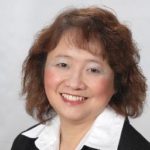
Mei-Po-Kwan
Mei-Po-Kwan, has had transformational impacts how transportation specialists and GIScientists think about accessibility and travel pattern analysis, how feminist geographers understand quantification and GIS, and how health geographers, public health researchers, and scholars in other disciplines think about environmental exposure and the significance of neighborhood. Dr. Kwan has dramatically altered geo-visualization, and she has broadened GIScience to include more humanistic standards such as perceptions, emotions and behavior as core patterns. She has also advanced the conceptualization of uncertainty and bias by examining spatial contexts as rooted in everyday behaviors and experiences, rather than as contaniers fixed in space and time. Dr. Kwan’s work has transformed the discipline of geography and GIScience and infused a more robust geospatial understanding in the broader community of researchers and practitioners.

2020 AAG Fellows
Mei-Po-Kwan
2020 AAG Fellows
Mei-Po-Kwan, has had transformational impacts how transportation specialists and GIScientists think about accessibility and travel pattern analysis, how feminist geographers understand quantification and GIS, and how health geographers, public health researchers, and scholars in other disciplines think about environmental exposure and the significance of neighborhood. Dr. Kwan has dramatically altered geo-visualization, and she has broadened GIScience to include more humanistic standards such as perceptions, emotions and behavior as core patterns. She has also advanced the conceptualization of uncertainty and bias by examining spatial contexts as rooted in everyday behaviors and experiences, rather than as contaniers fixed in space and time. Dr. Kwan’s work has transformed the discipline of geography and GIScience and infused a more robust geospatial understanding in the broader community of researchers and practitioners.
Nina Lam
Nina Lam, Louisiana State University
2020 AAG Fellows
Nina Lam
2020 AAG Fellows
Nina Lam, Louisiana State University
Glen Sproul dit MacDonald
Glen Sproul dit MacDonald, University of California Los Angeles
2020 AAG Fellows
Glen Sproul dit MacDonald
2020 AAG Fellows
Glen Sproul dit MacDonald, University of California Los Angeles
Sara McLafferty
Sara McLafferty, University of Illinois
2020 AAG Fellows
Sara McLafferty
2020 AAG Fellows
Sara McLafferty, University of Illinois
Risa Palm
Risa Palm, Georgia State University
2020 AAG Fellows
Risa Palm
2020 AAG Fellows
Risa Palm, Georgia State University
Susan (Sue) Roberts
Susan (Sue) Roberts, University of Kentucky
2020 AAG Fellows
Susan (Sue) Roberts
2020 AAG Fellows
Susan (Sue) Roberts, University of Kentucky
Billie Lee Turner II
Billie Lee Turner II, Arizona State University
2020 AAG Fellows
Billie Lee Turner II
2020 AAG Fellows
Billie Lee Turner II, Arizona State University
Elizabeth (Libby) Wentz
Elizabeth (Libby) Wentz, Arizona State University
2020 AAG Fellows
Elizabeth (Libby) Wentz
2020 AAG Fellows
Elizabeth (Libby) Wentz, Arizona State University
Cort Willmott
Cort Willmott, University of Delaware (ret.)
2020 AAG Fellows
Cort Willmott
2020 AAG Fellows
Cort Willmott, University of Delaware (ret.)
Julie Winkler
Julie Winkler, Michigan State University
2020 AAG Fellows
Julie Winkler
2020 AAG Fellows
Julie Winkler, Michigan State University
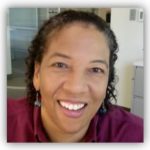
Dawn Wright
Chief Scientist at Esri, is recognized for her extraordinary contributions to science, pioneering and synthetic thinking about oceanography, geography, and GIS, and for her years of leadership. Over the course of her career, Dr. Wright has combined her expertise in spatial data science and oceanography to make creative and pioneering contributions to geograp
Her saltwater fieldwork began with many expeditions on the scientific research ship, the JOIDES Resolution. She was a key leader of a joint Esri/U.S. Geological Survey team that developed the first 3-Dimensional map of the waters within the world’s ocean, also known as the Ecological Marine Units. During her career, she has also received a innumerable awards and recognitions, including: the 25 BadAxx Women Shaping Climate Action in 2021, the American Geographical Society’s George Davidson Medal, the Extraordinary Leaders Award from the Society of Extraordinary Women in Science and Innovation, the AAG Presidential Achievement Award, and is a Fellow of many notable societies including AAAS, the Geological Society of America, the AAG, the Oceanography Society, and the California Academy of Sciences.

2020 AAG Fellows
Dawn Wright
2020 AAG Fellows
Chief Scientist at Esri, is recognized for her extraordinary contributions to science, pioneering and synthetic thinking about oceanography, geography, and GIS, and for her years of leadership. Over the course of her career, Dr. Wright has combined her expertise in spatial data science and oceanography to make creative and pioneering contributions to geograp
Her saltwater fieldwork began with many expeditions on the scientific research ship, the JOIDES Resolution. She was a key leader of a joint Esri/U.S. Geological Survey team that developed the first 3-Dimensional map of the waters within the world’s ocean, also known as the Ecological Marine Units. During her career, she has also received a innumerable awards and recognitions, including: the 25 BadAxx Women Shaping Climate Action in 2021, the American Geographical Society’s George Davidson Medal, the Extraordinary Leaders Award from the Society of Extraordinary Women in Science and Innovation, the AAG Presidential Achievement Award, and is a Fellow of many notable societies including AAAS, the Geological Society of America, the AAG, the Oceanography Society, and the California Academy of Sciences.
John Agnew
John Agnew, University of California, Los Angeles
2019 AAG Fellows
John Agnew
2019 AAG Fellows
John Agnew, University of California, Los Angeles
Anthony Brazel
Anthony Brazel, Prof. Emeritus, Arizona State University
2019 AAG Fellows
Anthony Brazel
2019 AAG Fellows
Anthony Brazel, Prof. Emeritus, Arizona State University
Stanley Brunn
Stanley Brunn, Prof. Emeritus, University of Kentucky
2019 AAG Fellows
Stanley Brunn
2019 AAG Fellows
Stanley Brunn, Prof. Emeritus, University of Kentucky
David R. Butler
David R. Butler, Texas State University
2019 AAG Fellows
David R. Butler
2019 AAG Fellows
David R. Butler, Texas State University
William Clark
William Clark, University of California, Los Angeles
2019 AAG Fellows
William Clark
2019 AAG Fellows
William Clark, University of California, Los Angeles
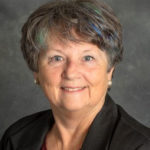
Susan Cutter
Susan Cutter, Carolina Distinguished Professor of Geography and Director of the Hazards
and Vulnerability Research Institute at the University of South Carolina.Dr. Cutter has made transformative, far-reaching research contributions to geography and the broader interdisciplinary research communities that focus on hazards and disasters. Her work led to development of the Social Vulnerability Index, the first nationwide empirical representation of social vulnerability. The Index is used in National Risk Assessment toolkit and by many other nations. She also pioneered the Baseline Resilience Indicators for Communities, a county-level assessment of disaster resilience; the Hazards of Place model of vulnerability, which analyzes the contributions of physical and social vulnerability to overall place vulnerability; and the Disaster Resilience of Place model, which identify place-based differences and measures progress towards resilient goals and outcomes.

2019 AAG Fellows
Susan Cutter
2019 AAG Fellows
Susan Cutter, Carolina Distinguished Professor of Geography and Director of the Hazards
and Vulnerability Research Institute at the University of South Carolina.Dr. Cutter has made transformative, far-reaching research contributions to geography and the broader interdisciplinary research communities that focus on hazards and disasters. Her work led to development of the Social Vulnerability Index, the first nationwide empirical representation of social vulnerability. The Index is used in National Risk Assessment toolkit and by many other nations. She also pioneered the Baseline Resilience Indicators for Communities, a county-level assessment of disaster resilience; the Hazards of Place model of vulnerability, which analyzes the contributions of physical and social vulnerability to overall place vulnerability; and the Disaster Resilience of Place model, which identify place-based differences and measures progress towards resilient goals and outcomes.
Daniel A. Griffith
Daniel A. Griffith, University of Texas Dallas
2019 AAG Fellows
Daniel A. Griffith
2019 AAG Fellows
Daniel A. Griffith, University of Texas Dallas
Jonathan Harbor
Jonathan Harbor, University of Montana
2019 AAG Fellows
Jonathan Harbor
2019 AAG Fellows
Jonathan Harbor, University of Montana
Thomas Mote
Thomas Mote, University of Georgia
2019 AAG Fellows
Thomas Mote
2019 AAG Fellows
Thomas Mote, University of Georgia
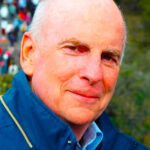
Martin (Mike) Pasqualetti
Martin (Mike) Pasqualetti, Arizona State University

2019 AAG Fellows
Martin (Mike) Pasqualetti
2019 AAG Fellows
Martin (Mike) Pasqualetti, Arizona State University
Mark D. Schwartz
Mark D. Schwartz, University of Wisconsin-Milwaukee
2019 AAG Fellows
Mark D. Schwartz
2019 AAG Fellows
Mark D. Schwartz, University of Wisconsin-Milwaukee
Eric Sheppard
Eric Sheppard, University of California, Los Angeles
2019 AAG Fellows
Eric Sheppard
2019 AAG Fellows
Eric Sheppard, University of California, Los Angeles
Renee Sieber
Renee Sieber, McGill University
2019 AAG Fellows
Renee Sieber
2019 AAG Fellows
Renee Sieber, McGill University
Thomas Baerwald
Thomas Baerwald, National Science Foundation
2018 AAG Fellows
Thomas Baerwald
2018 AAG Fellows
Thomas Baerwald, National Science Foundation
Sarah W. Bednarz
Sarah W. Bednarz, Texas A&M University
2018 AAG Fellows
Sarah W. Bednarz
2018 AAG Fellows
Sarah W. Bednarz, Texas A&M University
Daniel Block
Daniel Block, Chicago State University
2018 AAG Fellows
Daniel Block
2018 AAG Fellows
Daniel Block, Chicago State University
Judith Carney
Judith Carney, UCLA
2018 AAG Fellows
Judith Carney
2018 AAG Fellows
Judith Carney, UCLA
Jennifer Clark
Jennifer Clark, Georgia Institute of Technology
2018 AAG Fellows
Jennifer Clark
2018 AAG Fellows
Jennifer Clark, Georgia Institute of Technology
Craig Colten
Craig Colten, Louisiana State University, for his many significant contributions while a government employee during his early career and, later, as an academic.
2018 AAG Fellows
Craig Colten
2018 AAG Fellows
Craig Colten, Louisiana State University, for his many significant contributions while a government employee during his early career and, later, as an academic.
Joe T. Darden
Joe T. Darden, Michagan State University
2018 AAG Fellows
Joe T. Darden
2018 AAG Fellows
Joe T. Darden, Michagan State University
David DiBiase
David DiBiase, Esri
2018 AAG Fellows
David DiBiase
2018 AAG Fellows
David DiBiase, Esri
Kenneth Foote
Kenneth Foote, University of Connecticut
2018 AAG Fellows
Kenneth Foote
2018 AAG Fellows
Kenneth Foote, University of Connecticut
Amy Glasmeier
Amy Glasmeier, Massachuiessts Institute of Techology
2018 AAG Fellows
Amy Glasmeier
2018 AAG Fellows
Amy Glasmeier, Massachuiessts Institute of Techology
Patricia Gober
Patricia Gober, Arizona State University
2018 AAG Fellows
Patricia Gober
2018 AAG Fellows
Patricia Gober, Arizona State University
Daniel A. Griffith
Daniel A. Griffith, University of Texas Dallas
2018 AAG Fellows
Daniel A. Griffith
2018 AAG Fellows
Daniel A. Griffith, University of Texas Dallas
Stephen Hanna
Stephen Hanna, University of Mary Washington
2018 AAG Fellows
Stephen Hanna
2018 AAG Fellows
Stephen Hanna, University of Mary Washington
Audrey Kobayashi
Audrey Kobayashi, Queen’s University
2018 AAG Fellows
Audrey Kobayashi
2018 AAG Fellows
Audrey Kobayashi, Queen’s University
Helga Leitner
Helga Leitner, UCLA
2018 AAG Fellows
Helga Leitner
2018 AAG Fellows
Helga Leitner, UCLA
Richard Marston
Richard Marston, Kansas State University
2018 AAG Fellows
Richard Marston
2018 AAG Fellows
Richard Marston, Kansas State University
Janice Monk
Janice Monk, University of Arizona
2018 AAG Fellows
Janice Monk
2018 AAG Fellows
Janice Monk, University of Arizona
Kavita Pandit
Kavita Pandit, Georgia State University
2018 AAG Fellows
Kavita Pandit
2018 AAG Fellows
Kavita Pandit, Georgia State University
Bruce Rhoads
Bruce Rhoads, University of Illinois
2018 AAG Fellows
Bruce Rhoads
2018 AAG Fellows
Bruce Rhoads, University of Illinois
Douglas Sherman
Douglas Sherman, University of Alabama
2018 AAG Fellows
Douglas Sherman
2018 AAG Fellows
Douglas Sherman, University of Alabama
James Tyner
James Tyner, Kent State University
2018 AAG Fellows
James Tyner
2018 AAG Fellows
James Tyner, Kent State University